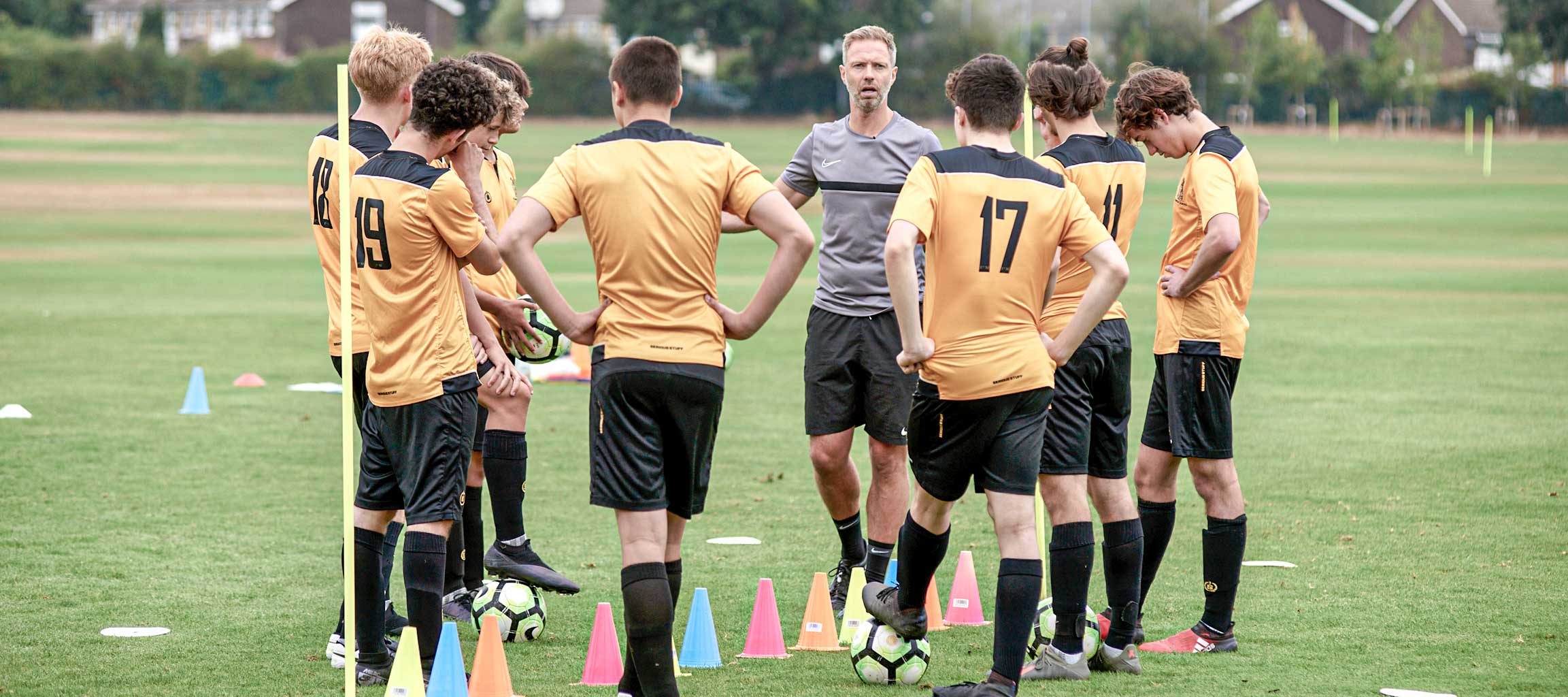
As a football coaching apprentice, you will work with athletes to help them attain their maximum potential. They may collaborate closely with professional athletes, sports teams, community organisations, or school groups to improve performance. They may be in charge of encouraging underrepresented groups or young people to participate in sports.
Football coaches develop talent by assessing needs and designing and implementing effective training programmes. Regardless of the setting, coaching help enhance participants’ physical and psychological health and provides the best possible practical conditions to maximise their performance.
In addition to teaching, many football coaches have supplementary, often full-time jobs. For example, many sports coaches work part-time and without pay, offering coaching services exclusively on a volunteer basis.
Responsibilities
Throughout your apprenticeship, you may help:
- plan and run amateur, semi-professional or professional coaching sessions
- give feedback on performance and fitness
- discuss individual player and team tactics
- offer guidance on nutrition and injury prevention
- keep up to date with good coaching practice
- help players keep a positive mental attitude and self-discipline.
Salary
- Typical starting salaries for newly qualified football coach working for local authorities range from £15,000 to £25,000, depending on location and qualifications.
- The typical salary range for senior football coach employed by National Governing Bodies (NGBs) or professional sports clubs is £30,000 to £35,000.
- Experienced football coaches working at the highest level have the potential to earn in excess of £100,000.
- Hourly rates for football coaches working with amateur teams start at around £10.
Working hours
Many posts include early morning, evening or weekend work. Work may also be seasonal for some sports. Part-time work and self-employment are common, but on average you’ll be working 36 to 38 hours a week.
Work environment
You might work in your community, a school, a college, a university, or a sports facility.
Your employer may require you to work outdoors in all weather conditions, be physically demanding, and travel often.
You may have to wear a uniform.
Qualifications
Qualifications you can achieve as an apprentice football coach include:
- Level 4 Sports Coach – Entry requirements for this level include 4 or 5 GCSEs at grades 9 to 4 (A* to C) and A levels, or equivalent, for a higher or degree apprenticeship.
These typically take 18 months to complete as a mix of workplace learning and study.
Skills
On a football coaching apprenticeship, you’ll learn:
- leadership skills
- the ability to teach pupils how to do something
- patience and the ability to remain calm in stressful situations
- the ability to monitor your own performance and that of your colleagues
- excellent verbal communication skills
- knowledge of teaching and the ability to design courses
- to be thorough and pay attention to detail
- the ability to use your initiative
- to be able to carry out basic tasks on a computer or hand-held device.
Employers
Different employers offer different kinds of opportunities. The range of employers includes:
- charitable sports trusts and local authorities
- schools
- colleges and universities
- sports councils
- sport NGBs
- private sports clubs
- hotels
- fitness centres
- leisure facilities.
Professional development
In partnership with sports governing organisations, UK Coaching produced the UKCC – UK Coaching Certificate. It is a component of the UK Coaching Framework, a set of officially recognised criteria for UK coaching.
The framework is divided into eight sections, including participant modelling, coaching method, and coach education and development. Many qualifications are assessed against this standard, and these components regulate the expansion of coaching in the United Kingdom.
For novice and seasoned football coaches, a workshop curriculum covering essential aspects of the coaching role is presented. Self-study and distance learning are two study approaches. Many individuals take these courses on their own time.
More advanced football coaching qualifications may be achieved by following the structure of the individual sport’s NGB or gaining expertise in a specific field, such as strength and conditioning. However, more professional certificates may require more time and money.
The Level 1 coaching certification is sufficient for individuals to begin employment, but continuing to develop professional skills and knowledge is an important component of career progression. Therefore, further certifications will boost your employability. In addition, coaches must keep up to date on various topics in the professional sports sector, such as nutrition, scientific research, and sports psychology.
Football coaches employed by specific programmes are often encouraged and may get financial assistance to complete the requisite levels of certification. For example, working with children requires training in child safety and protection and certification in first aid.
Career prospects
Professional progress may be slow and dependent on personal motivation since it takes time to acquire coaching talents and an excellent reputation.
Job promotion for football coaches who work with professional athletes is often contingent on results, which may be measured by a performer’s accomplishments and development or by the level of enjoyment of the participants.
The capacity to effectively offer your services and talents to potential customers is also essential for progress in this sector. Even in this profession, coaches strive to diversify the services they provide. This is supported by ongoing professional skill development via seminars and workshops and staying up to date on new difficulties and changes to sporting practices.
Senior football coaching roles sometimes need advanced coaching talents and are more likely to necessitate a degree. Unfortunately, the number of employment available at this level is limited, with the majority being with sport NGBs or national teams.
A degree is also helpful in advancing sports development careers. Coach education and volunteer management are two more feasible career options. Professional progress may be slow and dependent on personal motivation since it takes time to acquire coaching talents and an excellent reputation. Geographic mobility is beneficial.
